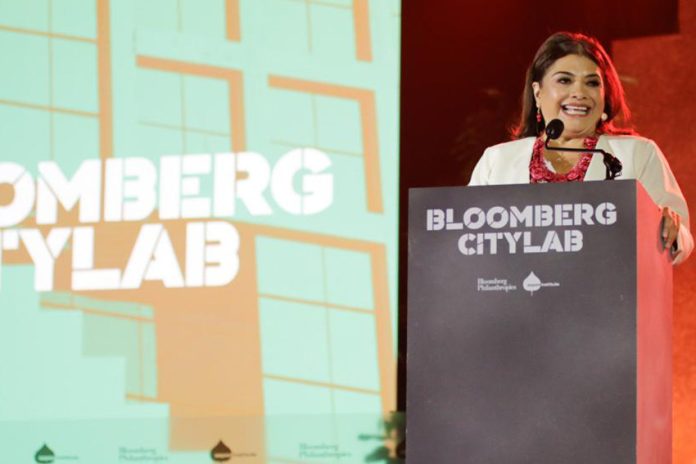Mexico City Mayor Clara Brugada addressed the Bloomberg CityLab Summit in Mexico City on Tuesday, 10 days after she took office as the capital’s second elected female mayor.
Brugada, who was mayor of the Mexico City borough of Iztaplala on two occasions before winning this year’s mayoral election, will govern the capital for the next six years, continuing the Morena party’s rule in the nation’s biggest city.
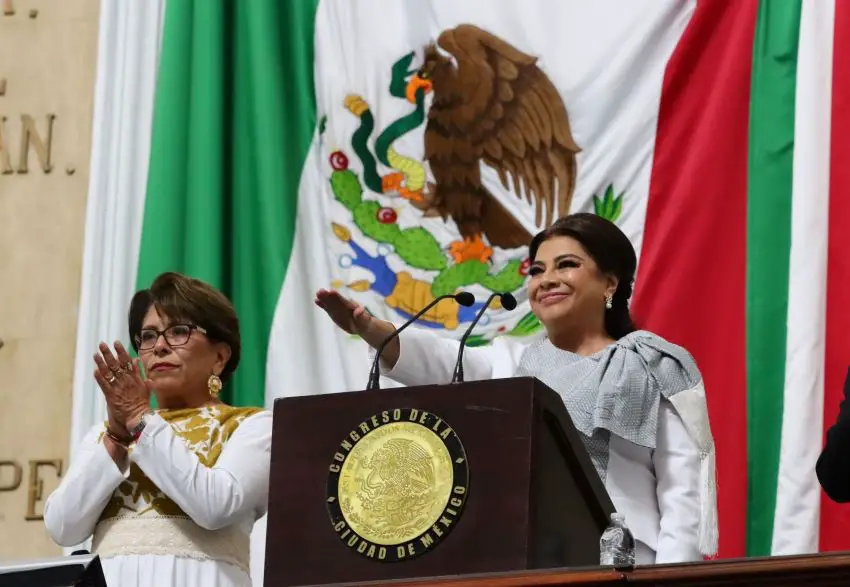
She replaced the interim Mexico City mayor, Marti Batres, who took over for then-mayor Claudia Sheinbaum after she resigned to run for the presidency.
Here are some of the highlights of the speech Brugada made on Tuesday to an audience that included scores of her fellow mayors from countries around the world.
‘It’s time for women’
Echoing the words of former Mexico City mayor and new Mexican President Claudia Sheinbaum, Brugada declared that “it’s time for women in this country and the world.”
Mexico, she said, is currently in “historic times,” given that the country has its first female president.
Brugada stressed that the “it’s time for women” declaration doesn’t just apply to political representation, but is also a commitment to improving the lives of all women.
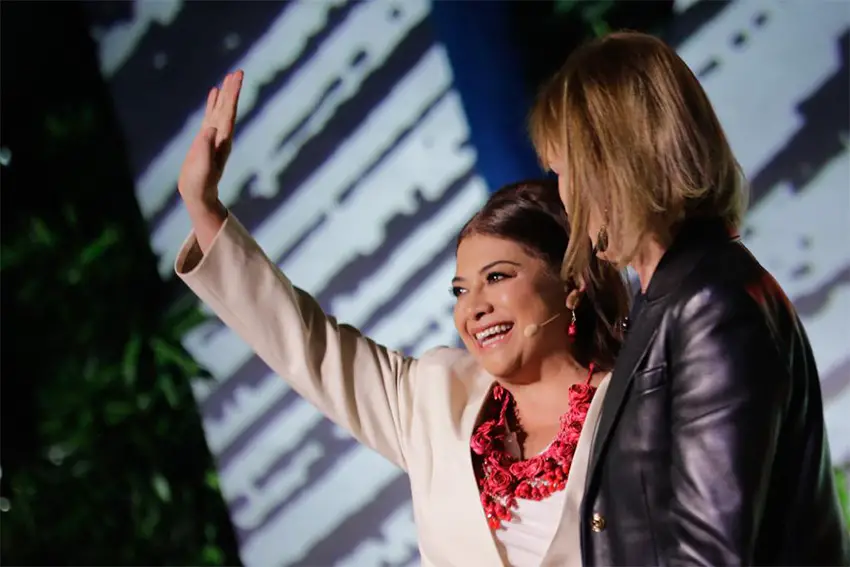
She asserted that achieving gender equality is “one of the most important priorities” for her, and for Sheinbaum.
“So, with women, we’re building a great and substantive equality plan for Mexico City,” Brugada said.
“For me, ‘it’s time for women’ means it’s time to deliver justice to women, and this means public policies that place combating gender inequality at their center,” she said.
Caregiving can become a ‘public responsibility’
Further outlining her plan to deliver justice to women, Brugada said that one of the “fundamental” goals of her government will be to create “the Mexico City public care system.”
“This is very important because it’s a new way to rethink cities,” she said.
Brugada said that her proposal entails “ceasing to think that care is solely a private task,” explaining that her government will build new public infrastructure where children, the elderly and the disabled can access care services, thus relieving pressure on their current carers, the majority of whom are women.
“We’re going to create robust [caregiving] infrastructure that includes more than 200 childcare and development centers,” Brugada said, “… but also day centers for senior citizens, rehabilitation centers for people with disabilities.”
By building adequate infrastructure, care can become a “public responsibility” rather than a private one, Brugada said, adding that access to the city’s care services will be a “right” for citizens and that the city government has an “obligation” to provide those services in accordance with the Mexico City constitution.
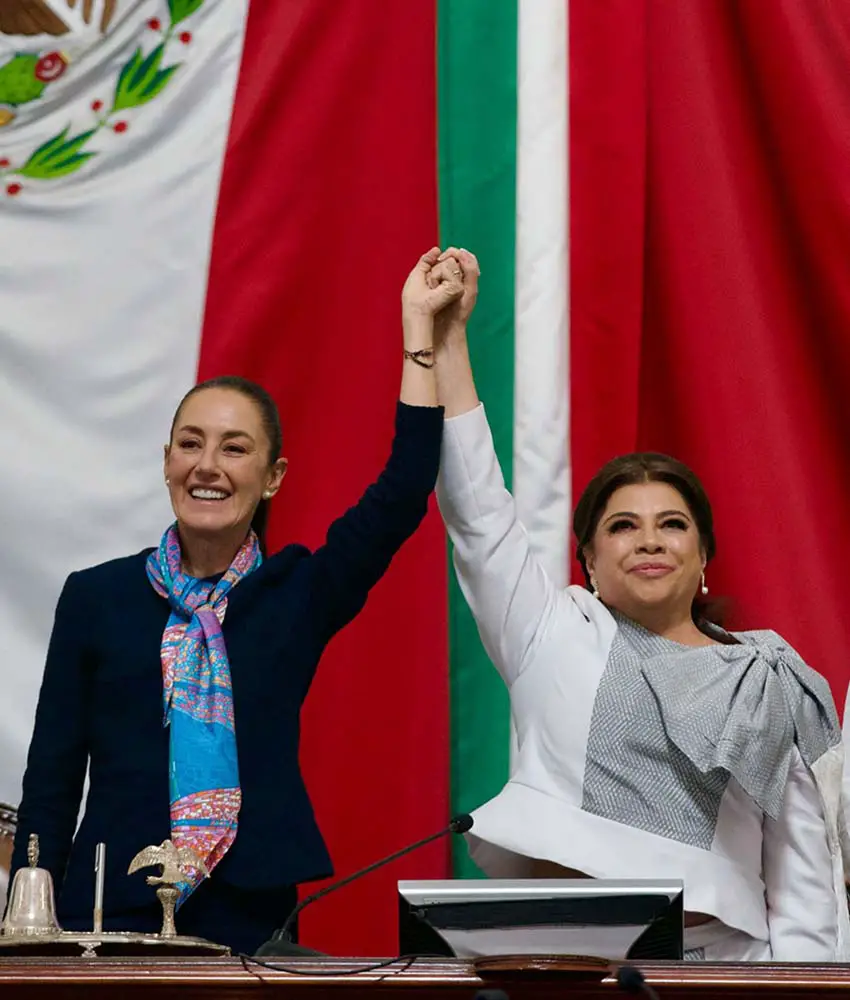
CDMX’s ‘second story’ of transformation
“Our task is to build the second story of the transformation of this great city,” Brugada said, once again borrowing from the discourse of President Sheinbaum, who says her government will consolidate the so-called “fourth transformation” (4T) of Mexico initiated by former president Andrés Manuel López Obrador.
“… What does that mean? [It means] building territories of peace and equality, deepening security models that are close … to the people,” she said, referring to policing strategies.
“This means continuing with a [security] model that has yielded results,” Brugada said, citing an almost 60% decline in high-impact crimes such as murder during the term of the previous Mexico City government.
She also highlighted the importance of using technology in the ongoing fight against crime.
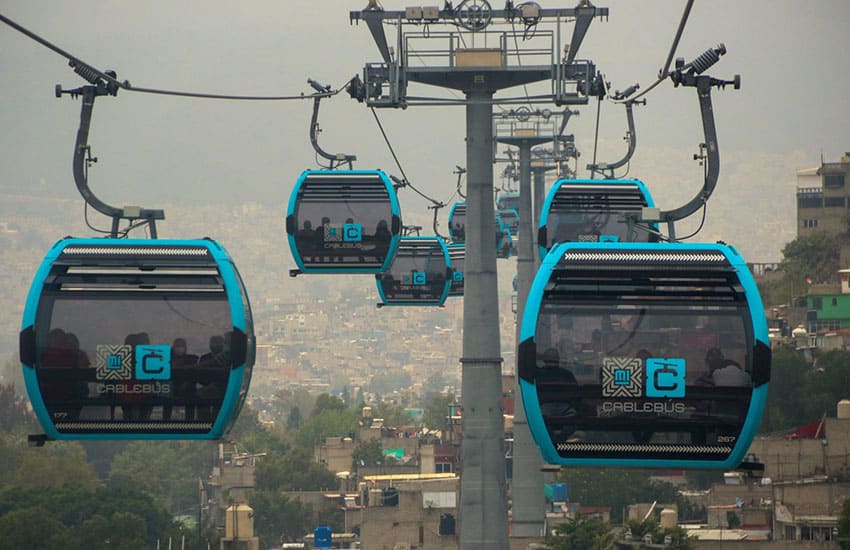
More sustainable, time-saving transport coming
Before emphasizing the importance of continuing to build new transport infrastructure, Brugada told the Bloomberg CityLab Summit that 78% of Mexico City residents regularly use public transport to get around the capital.
She highlighted her pledge to build an additional five cable car (cablebús) transportation lines that link (mainly disadvantaged) neighborhoods to other transport services, such as the Mexico City Metro.
She also pledged to build additional cycleways and to continue investing in electromobility, or e-mobility, in Mexico City, where many electric buses already operate.
“We want the main force of transport in Mexico City to be sustainable,” Brugada said.
“We will continue with electromobility [initiatives], we will continue building accessible, sustainable infrastructure that reduces transport times. In this city, we want people to be able to enjoy themselves with their families instead of spending hours and hours on transport,” the mayor added.
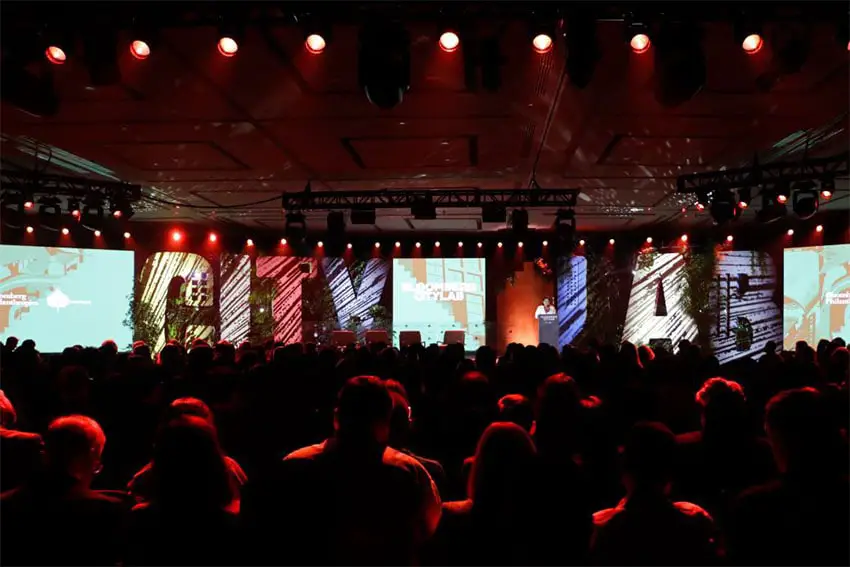
Problems need ‘metropolitan solutions’
Brugada highlighted that while the population of the 16 alcaldías, or boroughs, of Mexico City is approximately 9 million, some 22 million people call the capital’s greater metropolitan area home.
Issues that affect Mexico City proper affect the entire metropolitan area, she said.
“We can’t think of issues like air, … water and security without having a metropolitan vision,” said Brugada, who has pledged to work closely with Delfina Gómez, the governor of México state, where a large number of municipalities in the greater Mexico City area are located.
The mayor acknowledged that “one of the fundamental issues for the city is water” and pledged to change the way water is managed to reduce waste of the essential liquid.
Brugada also spoke briefly about waste management, telling the summit attendees that some 13,000 tonnes of trash are produced in Mexico City every day
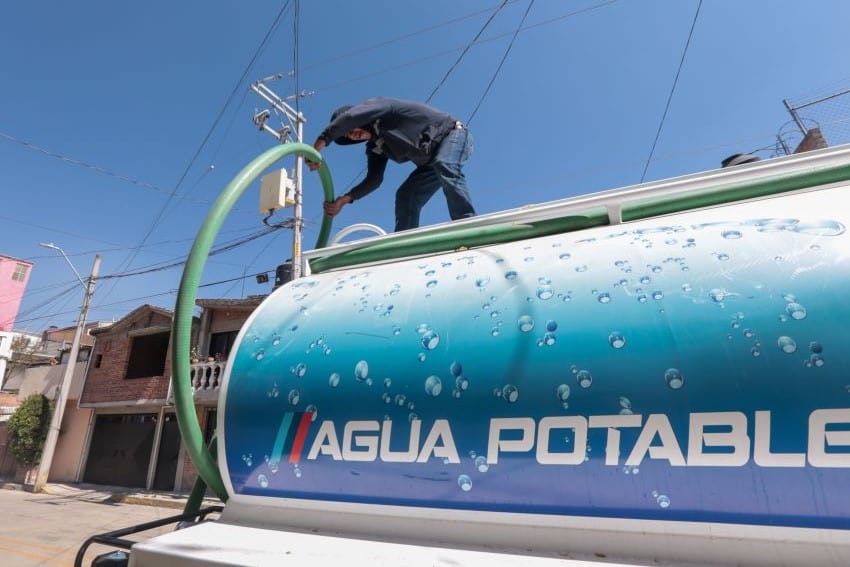
“Within six years, we’re proposing recycling half of all of Mexico City’s waste. This is very important. … We have the method, which is large recycling plants,” she said.
New ‘utopías’ on the horizon
Brugada is perhaps best known for Iztapalapa’s “utopía” community center projects, which provide free athletic, recreation and education opportunities in the disadvantaged borough.
On Tuesday, the former Iztapalapa mayor spoke about her government’s plan to build an additional 100 “beautiful” utopías across the capital.
“This city is planning a great project for the transformation of public spaces,” Brugada said.
“… What are the utopías? … [They are] great, transformative projects that have infrastructure for sport, recreation, culture, well-being and caregiving,” she said.
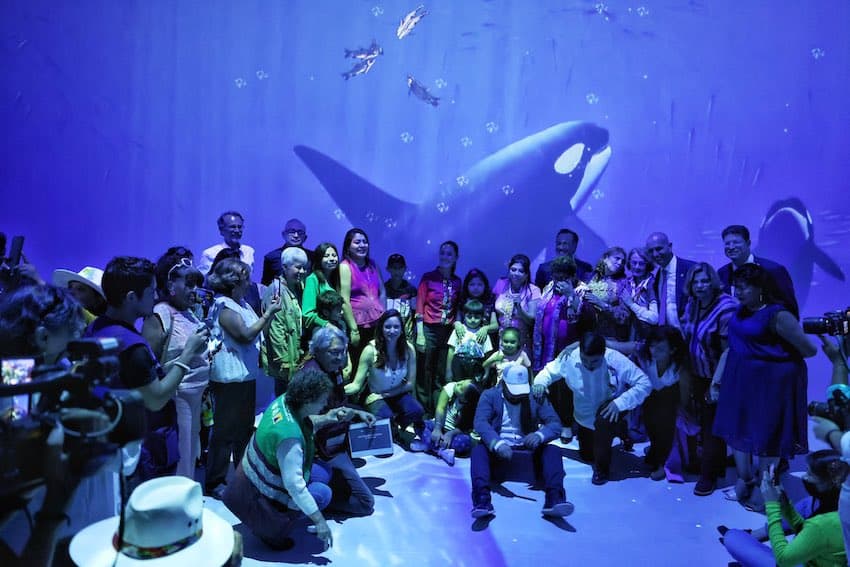
Brugada said that the 100 new utopías will be built in parts of the capital where they are most needed
In keeping with the 15-minute urban planning concept, the utopías will be situated so that a large number of Mexico City residents can get to them in less than 15 minutes from their homes, she added.
“The utopías are our big bet for [achieving] equality, for delivering social and territorial justice in this city,” Brugada said.
“I come from an outlying area [of the city], so one of the big objectives we have is for the outlying areas of Mexico City to not be synonyms of inequality and abandonment,” she said.
A city with ‘shared prosperity’
Brugada noted that Mexico City has the largest economy of any city in Mexico, and set out a broad economic vision for the capital.
“We want this city to continue being a prosperous city, a city with shared prosperity, a city in which generating income comes with an environmental responsibility, a city in which we see that the best social program is employment,” she said.
The mayor also said she wants her administration to be “a great digital government, an open government and a government that promotes [internet] connectivity and modernity.”
Making another reference to López Obrador’s 4T, Brugada added that Mexico City is the “capital of the transformation” of Mexico.
“It’s a global, cosmopolitan and diverse city,” she told summit attendees from around the world.
By Mexico News Daily chief staff writer Peter Davies (peter.davies@mexiconewsdaily.com)
